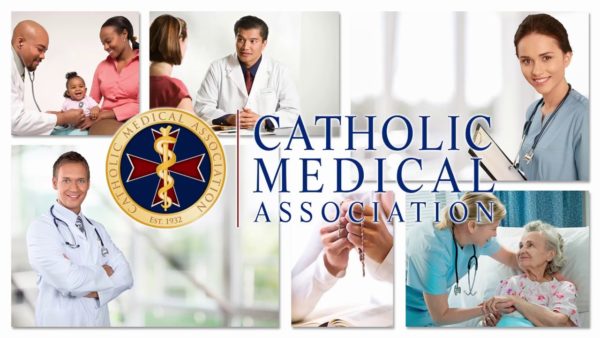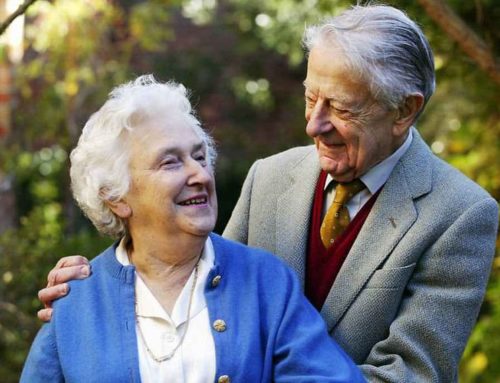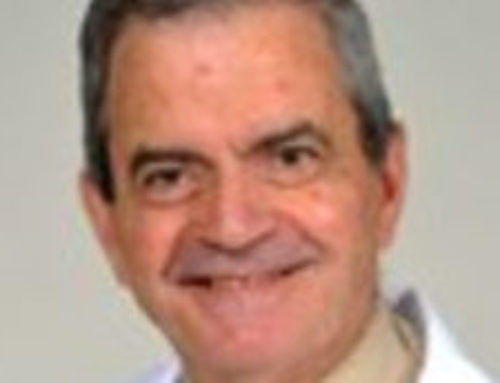Physician as Advocate: Defending Scientific Truth in the Public Square
BY TOM VENZOR
Physician advocacy is everywhere. It happens daily in the clinical setting when physicians advocate for their patients in the doctor-patient relationship. It happens regularly in committee meetings with the implementation and development of protocols and quality improvement systems. It happens in many other health care settings.
Most physician advocacy, especially with patients, is second nature, while other physician advocacy comes with the territory of certain professional job responsibilities. Regardless, physicians are constantly engaged in advocacy of some type.
Physician advocacy strives to improve patient outcomes, reduce health care costs, and improve public health. Physician advocacy also has the effect of providing personal and professional satisfaction while helping decrease physician burnout.
Yet one form of physician advocacy is often forgotten, neglected, or ignored: advocacy in the public square. By the public square, we mean the places where we gather to achieve political change. This can include regulatory bodies, state and local medical associations, and legislatures. Public square advocacy can address any number of health care issues, most obviously the serious issues of our day such as abortion, contraception, gender dysphoria, and physician-assisted suicide.
The Call to Physician Advocacy in the Public Square
While physician ethics and professional responsibilities encourage physicians to engage in advocacy in the public square, the deeper calling to this form of advocacy is rooted in Catholic tradition.
As Pope Benedict XVI stated in his encyclical Deus Caritas Est, “The just ordering of society and the State is a central responsibility of politics.” Because of this, the Church “cannot and must not remain on the sidelines in the fight for justice. She must play her part through rational argument, and she has to reawaken the spiritual energy without which justice, which always demands sacrifice, cannot prevail and prosper.”
Catholic social teaching has clearly underscored that involvement in the day-to-day of political life is the responsibility of the laity and is not a task of the clergy. While clergy are to be involved in the development of public policy by articulating the necessary guiding moral principles, it is the laity who are called to “roll up their sleeves” and “get their hands dirty” in the political sphere. To put it tersely, in the words of Pope Francis, “A good Catholic meddles in politics.”
This “meddling” in politics is a living out of those words of Christ, “Render unto Caesar what is Caesar’s.” This “meddling” should also recall the words of the great martyr St. Thomas More when, with his head on the chopping block, he said, “I die the King’s good servant, but God’s first.” The calling of the Catholic health care professional — as for any Catholic — is to engage in politics in a virtuous manner.
If the theological reasoning lacks persuasion, there is always the pragmatic argument for engaging in politics. Nebraska’s Lieutenant Governor, Mike Foley, has said it best: “Legislative issues are won by those who show up to the Capitol.”
Forming the Culture, Forming Friendship
Physician advocacy in politics is ultimately a labor of love. This is largely because politics is not a be-all, end-all endeavor. Politics has an incredible influence on society, but it is the formation of culture, broadly speaking, which is more important and fundamental. But what is “culture”?
Pope Benedict XVI laid out an excellent definition: “We might say that culture is the historically developed common form of expression of the insights and values which characterize the life of a community.”
However, the building of a good culture — and, with that, a good political order — can only come through a community that has been built up through friendship. At the core of each individual human being is a common human nature. We each have that same “need for truth, for love, for justice, for happiness,” as Father Julian Carron puts it. Within this common human nature, we can encounter one another and draw each other more deeply into the truth, including those basic truths which ought to guide our political order and public policy.
While the Catholic physician should strive to develop friendships through authentic encounters, it should be unsurprising when rejection occurs. Christ Himself reminded us that the world would hate us because it hated Him first.
In this work of cultural and political formation, it is good to remember the sage observation of Archbishop Charles Chaput, “The early Christians’ love for Jesus compelled them to choose a more excellent way, one that made them distinct, puzzling, and sometimes contemptible in the eyes of the wider culture.” Or put another way, when about the work of cultural formation, engage in charity, but do not expect charity in return.
The “How” of Physician Advocacy
Succeeding at physician advocacy in the public square can be practically achieved through several key building blocks.
First, cultivate relationships and build networks. The most important relationship is, of course, with God. It is from a place of being loved by God that we know who we are, why we have been sent on mission, and for what we have been sent. In addition to this critical relationship, develop relationships with others in the profession, especially with those who are like-minded. Build up your physician organizations such as your local Catholic Medical Association and statewide association.
It is also important to develop relationships with those outside the profession. For example, get to know and work closely with organizations like your state Catholic Conference, local and state pro-life organizations, and the Christian Medical and Dental Associations. And never forget to connect with medical students and young physicians, whose very futures depend on the advocacy work of today.
Second, stay in the know. Be informed of what the local and national political issues are through trusted organizations like your state Catholic Conference, the United States Conference of Catholic Bishops, Alliance Defending Freedom, and Becket. Also, know your strengths and use them on the task at hand, and know your weaknesses so that your shortcomings can be complemented by other peoples’ strengths. As you stay aware and act, do not go it alone. Rely on other experts in law, medicine, politics, theology, etc.
Third, get out there and engage in the culture. The possibilities are endless, but some examples follow:
- Get involved with your state medical association or practice-based association. Find a way onto their legislative committees and contribute to those committees, but especially when the “big ticket” cultural topics are debated.
- Reach out to your state Catholic Conference and offer your medical expertise on the legislation that they lobby on behalf of the Catholic Church. Perhaps you can help analyze legislation, testify, or lobby.
- Build a relationship with your local elected officials, especially your state representatives. Similarly, build relationships with key staffers in governmental departments like your state health and human services office. You are a leader in your community, and they know it, which means your voice will be heard even if not always heeded.
- Find opportunities to join state boards and regulatory bodies in your field of expertise.
- If you are inclined to engage with the media, obtain media training to be effective with print, television, digital, and radio media. The public respects your voice, and it makes them think harder and deeper about the political ideas they consider.
In any of these efforts, be courageous while at the same time prudent and savvy. And know that the tendency for professionals will be to “keep your head down and mind your business,” but this is no longer an acceptable mode of operation. The task ahead, as we are sheep being sent amid cultural wolves, is to be “gentle as a dove, and wise as a serpent.”
All in God’s Time
As with every effort, the work of physician advocacy in the public square must be given over to the Lord. Our job is to figure out not if, but how, God wants us to engage in political advocacy — and then to carry out the work.
We plant the seeds of faith and present the truth and pray that the seeds fall on rich soil that will bear fruit. We seek to change hearts and bring those hearts closer to the Sacred Heart of Jesus. And while we work diligently to bring the light of Christ into the public square, St. Augustine keenly reminds us that the city of man is not the city of God. We pray for our work to bear fruit sooner rather than later, but in the end, it is all in God’s good time.
This article is based on the presentation Light in the Darkness: Defending Scientific Truth in the Public Square given by Mr. Tom Venzor and Dr. David Hilger at the 91st Annual Educational Conference in Denver, Colorado on Sept. 8 and is available for purchase here.










